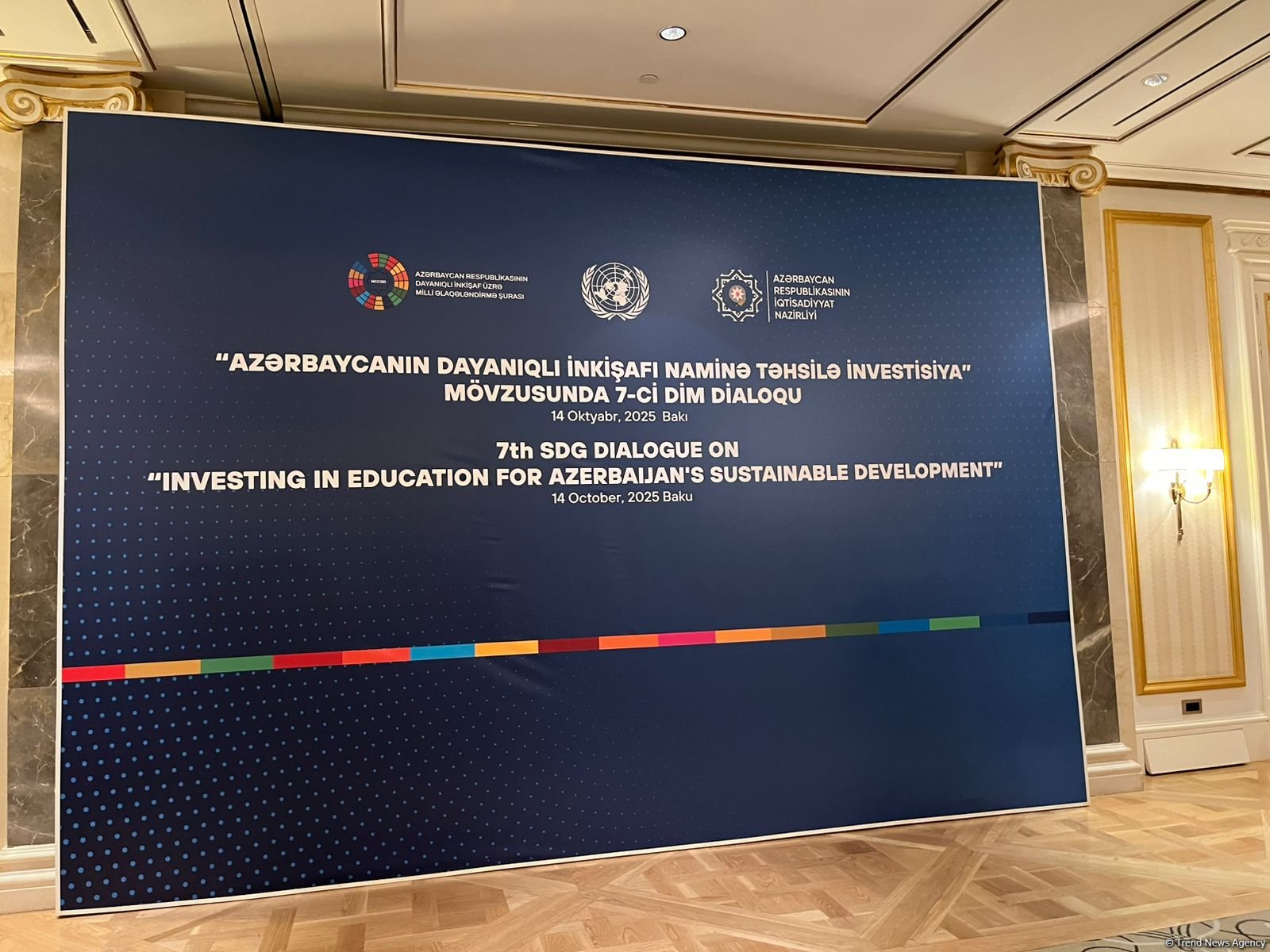BAKU, Azerbaijan, October 14. The 7th Dialogue on Sustainable Development Goals on the theme “Investing in Education for Azerbaijan’s Sustainable Development” was held in Baku, Trend reports.
The event was organized as a joint initiative of the National Coordination Council for Sustainable Development, the Ministry of Economy, and the United Nations.
At the opening ceremony, UN Resident Coordinator in Azerbaijan Vladanka Andreeva stated that the next phase of the “Investing in Education for Sustainable Development in Azerbaijan” program will cover the period 2026-2030:
“One of the main areas of this program will be education.”
Bahar Muradova, Chair of the State Committee for Family, Women, and Children Affairs of the Republic of Azerbaijan, drew attention to girls' education in her speech:
"We know that the value placed on the development of education is the greatest investment in the future. The world is changing every day, and new challenges are emerging. In recent years, investment in education has included policies aimed at human capital. Education is the foundation of cultural innovation. We are working together to implement new projects, especially those related to education. A large number of people have been involved in the programs implemented as part of the project to support girls' education in a short period of time. These initiatives not only change people's lives but also contribute to social justice and gender equality in the regions.
Bahar Muradova noted that up to 3,000 girls have been trained in preventing early marriage and have received an education.
Deputy Minister of Science and Education, Idris Isayev, noted that approximately $5 billion, or more precisely $4.9 billion, is allocated annually to education in Azerbaijan.
He reported that in recent years, a number of state programs, concepts, and strategies have been implemented in the field of education.
The main focus of these documents is to improve the quality of education, ensure its accessibility, create an educational environment in line with international standards, and consistently implement educational reforms.
The deputy minister emphasized that the state is the main investor in education:
"If we look at global experience, on average, about 85 percent of investment in education comes from the state, and 15 percent from the private sector. However, this figure varies depending on the country and level of education. In Azerbaijan, this ratio is slightly different: about 95 percent of investment in education is covered by the state budget, and only 5% by the private sector. Our state allocates about 5 billion manat ($2.9 billion) from the state budget for education annually.
This is equivalent to approximately 3.8 percent of gross domestic product."
According to Sadig Aliyev, chairman of the board of the State Employment Agency under the Ministry of Labor and Social Protection of the Population, special benefits and incentives are applied to organize vocational training courses in the liberated territories.
He noted that the State Employment Agency is also taking the initiative in the field of education and employment in the liberated territories:
''I would like to note in particular that our Agency applies special benefits and incentive mechanisms for organizing vocational training courses in the liberated territories. In order to encourage the organization of vocational training in the liberated territories and attract specialized educational institutions to the region, the collegium of the Ministry of Labor and Social Protection of the Population of the Republic of Azerbaijan has decided to add 20 percent to the per capita budget. In addition, the Karabakh Vocational Training Center organizes joint courses with private educational institutions in accordance with the needs of the region, creating opportunities for employers to make extensive use of its infrastructure. Along with the restoration of infrastructure in these regions, the restoration of human capital is also a priority.''







